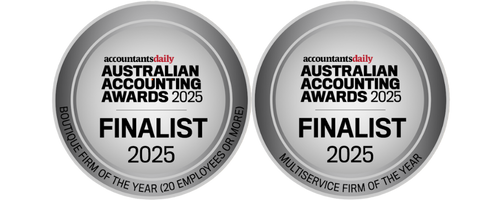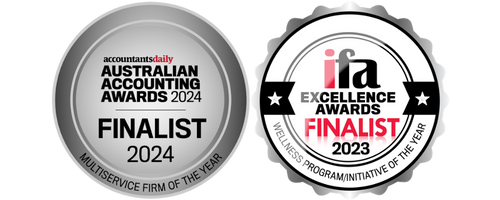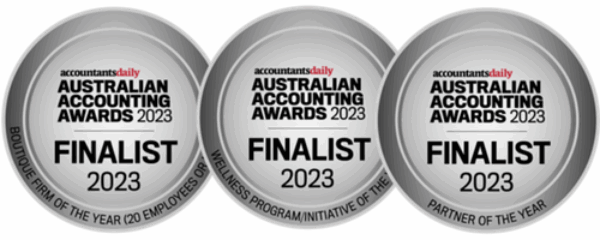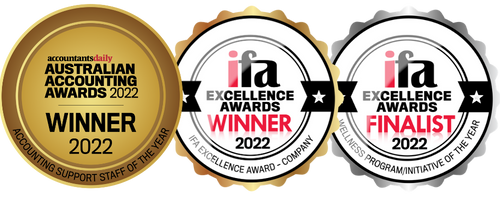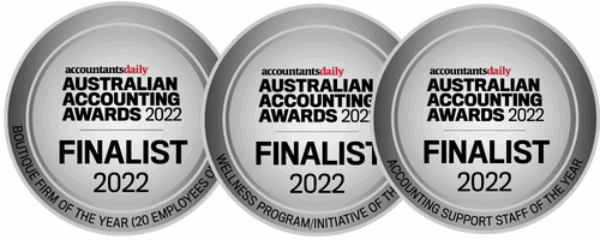It’s Fringe Benefits Tax (FBT) time again and this FBT year will end on 31 March 2022.
If you provide your employees with a benefit other than salary, wages, bonuses and superannuation, it’s likely you are providing Fringe Benefits to your employees. You could also be providing benefits under tax law, to employees’ family and associates (such as closely connected companies or trusts). Whilst there are of course some exemptions and thresholds before you have to pay FBT, the records must still be gathered, lodged and stored.
Due to a focus by the ATO in the area of FBT compliance, it is our recommendation for a FBT Return to be lodged even when the taxable value of the fringe benefit is reduced to Nil by way of employee contribution. This is to ensure that the ATO only has the relevant audit review period of 3 years to levy any FBT liability, rather than an unlimited period where no FBT Return is lodged.
It is very important to document any benefits provided to employees. Employers need to keep all invoices and receipts, travel diaries, logbooks, odometer records and employee declarations in relation to the following:
- Including vehicle provision, usage, leasing and parking.
Expense and Entertainment Benefits
- Reimbursement of an expense, or a payment to a third party for an employee (or an employee’s family member’s) expense. This could be business related, private, or a combination of both.
- Entertainment benefits include meals, drinks and recreation as well as accommodation and travel relating to the entertainment.
- Waiving a debt that is owed to you as an employer.
- Giving your employee an interest-free or low-interest loan (where the rate of interest is below the statutory ATO benchmark rate of 4.52% for the 2022 FBT year).
- Providing an employee with rent free or reduced rent accommodation. This can include a variety of different types of accommodation, from houses and hotels to boats and caravans.
- Supplying employees (who are entitled to accommodation), with meals.
Living Away from Home Allowance
- Paying an employee an allowance to cover additional expenses if they are required to temporarily live away from their usual residence to perform their job. It’s important to note that certain criteria met here, may determine that all, or part of this benefit would be treated as ‘Travelling on Work’ for tax purposes.
- Including the provision of free or discounted real estate, goods, or financial benefits like shares and bonds.
- Rights, privileges, services or facilities provided to employees that don’t fall into a specific category.
Exemptions and Concessions
- Note there are a number of FBT exemptions and concessions allowable for employers. Please contact your trusted Walshs adviser for discussion.
IMPORTANT TO NOTE FOR THIS FBT YEAR – COVID-19 AND NATURAL DISASTERS
It is the ATO’s view that a car fringe benefit will occur when a car the business owns, or leases, is made available for the private use of an employee. If an employee is garaging a work car at home, you may also be providing them with a car fringe benefit. For FBT purposes, a car is a motor vehicle (except a motorcycle or comparable vehicle) which is designed to carry a load of less than one tonne and fewer than nine passengers. But even though there are exemptions for these vehicles, some fringe benefits may be considered a residual benefit and therefore liable to FBT.
For the purposes of FBT, the following trips are exempt:
- Incidental travel in the course of performing employment-related travel
- Employee travel between home and work if it’s no more than 2kms
- Private travel, if the trips are minor, infrequent, irregular, and no more than 1,000kms in total for the FBT year (and no single return journey exceeds 200kms)
We always recommend that a record is kept of all trips that are not in these categories. For instance, regular private trips that are family related or regular weekend trips.
COVID Concession for Car Fringe Benefits
The ATO has continued a concession for cars that were stored at an employee’s home during the COVID period. Your FBT liability can potentially be reduced by the impact of COVID for the period the car was stored at the employee’s home, though it’s important to note there are strict requirements to be satisfied and we suggest you speak to us about your eligibility.
Other COVID Related Fringe Benefits
Other fringe benefits may too have been provided to your employees because of COVID-19, such as an incentive or reward for COVID-19 vaccinations or things like paid leave and transport to and from a vaccination appointment. You may also need to pay FBT on items you give your employees to help protect them from the virus while at work, things like gloves, sanitisers and masks. These items are FBT exempt where you are providing them in some workplaces, such as medical or hospitality, or if employees are in close contact with customers or clients or are cleaning premises.
Certain benefits you provide to your employees who are impacted in an emergency, like the recent Queensland and NSW floods, are exempt from fringe benefits tax. This includes assistance like emergency meals, clothing, accommodation, transport, household goods or emergency health care.
We are committed to our clients’ needs and are happy for you to contact us for discussion on any of the above in relation to your FBT.
Please do not hesitate to contact Walshs on 07 3221 5677 or enquiries@walshs.com.au.





